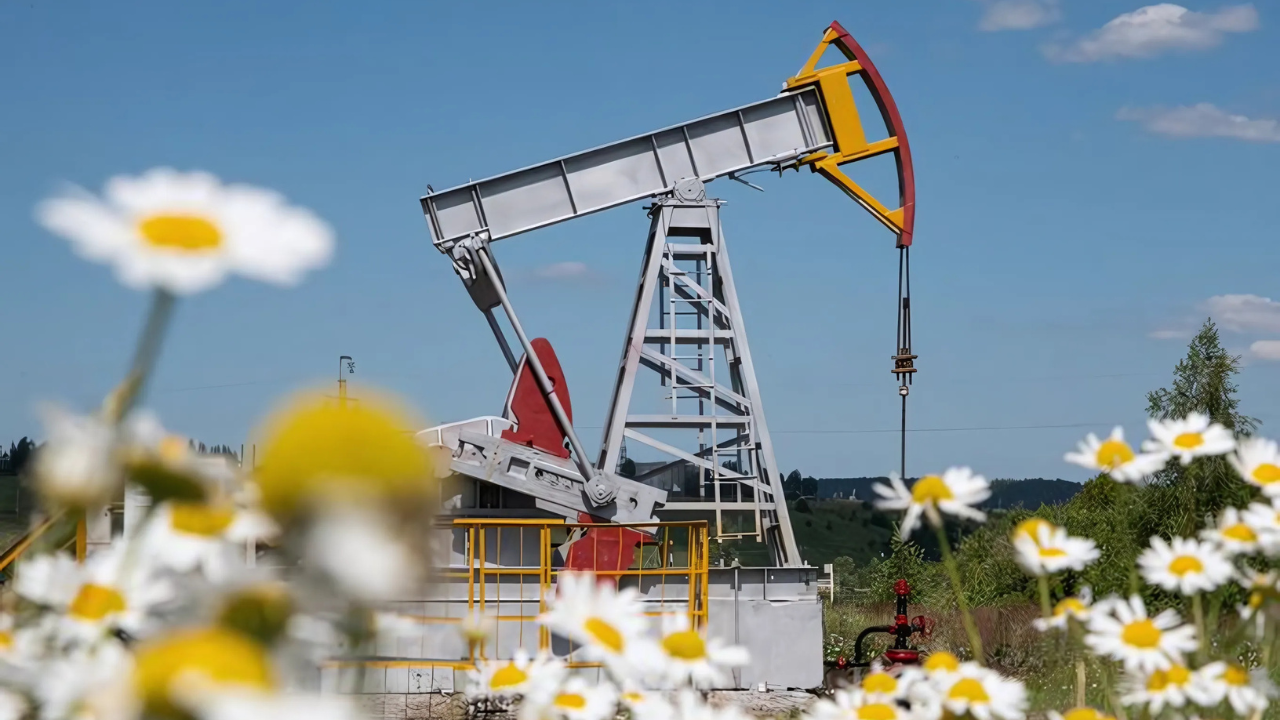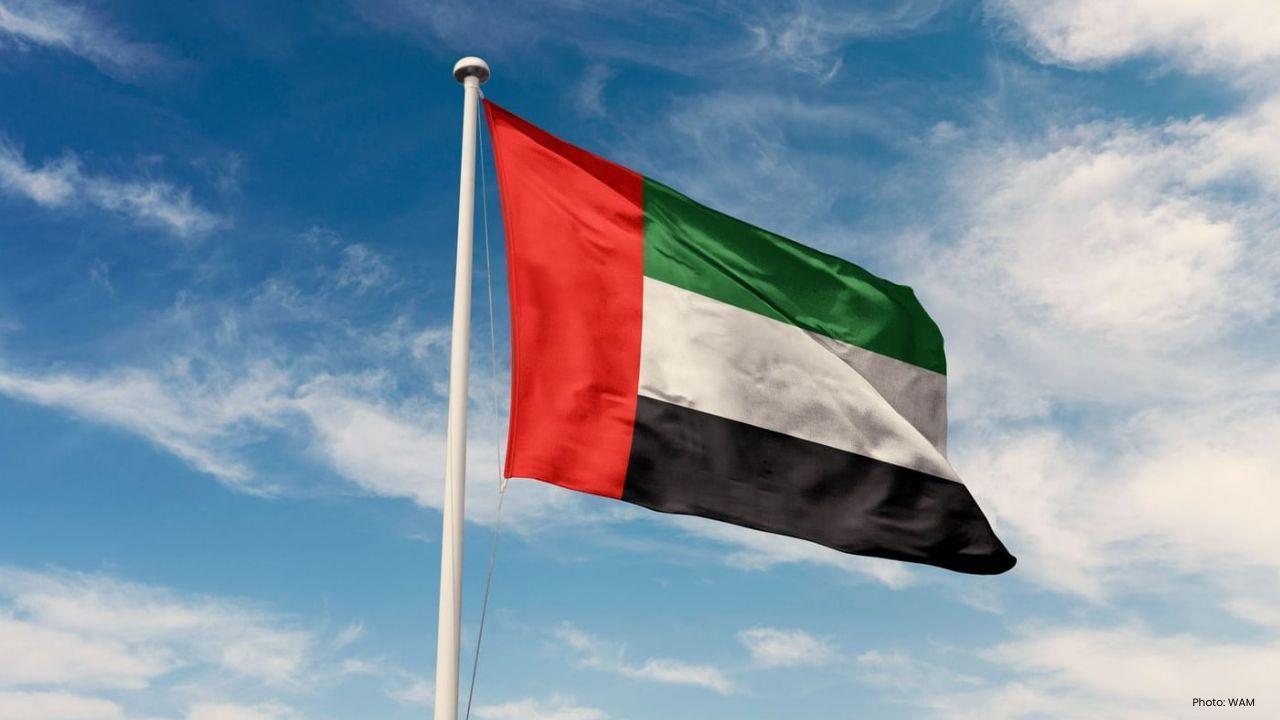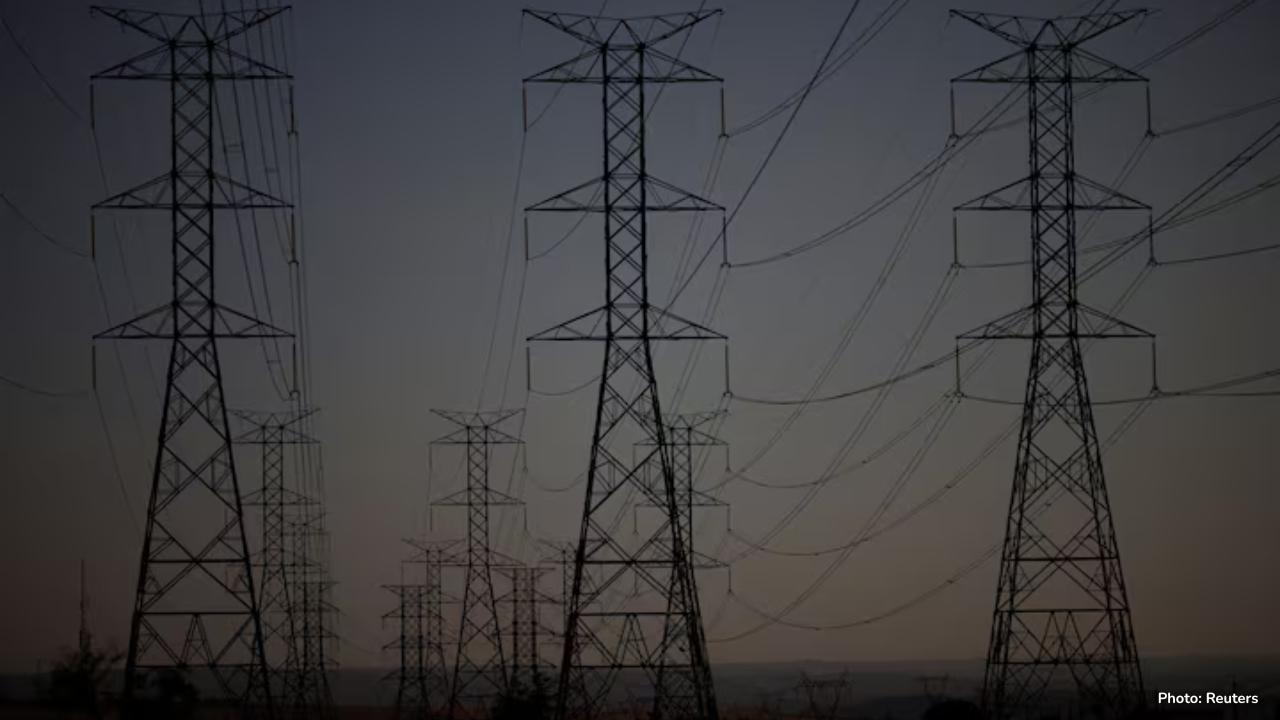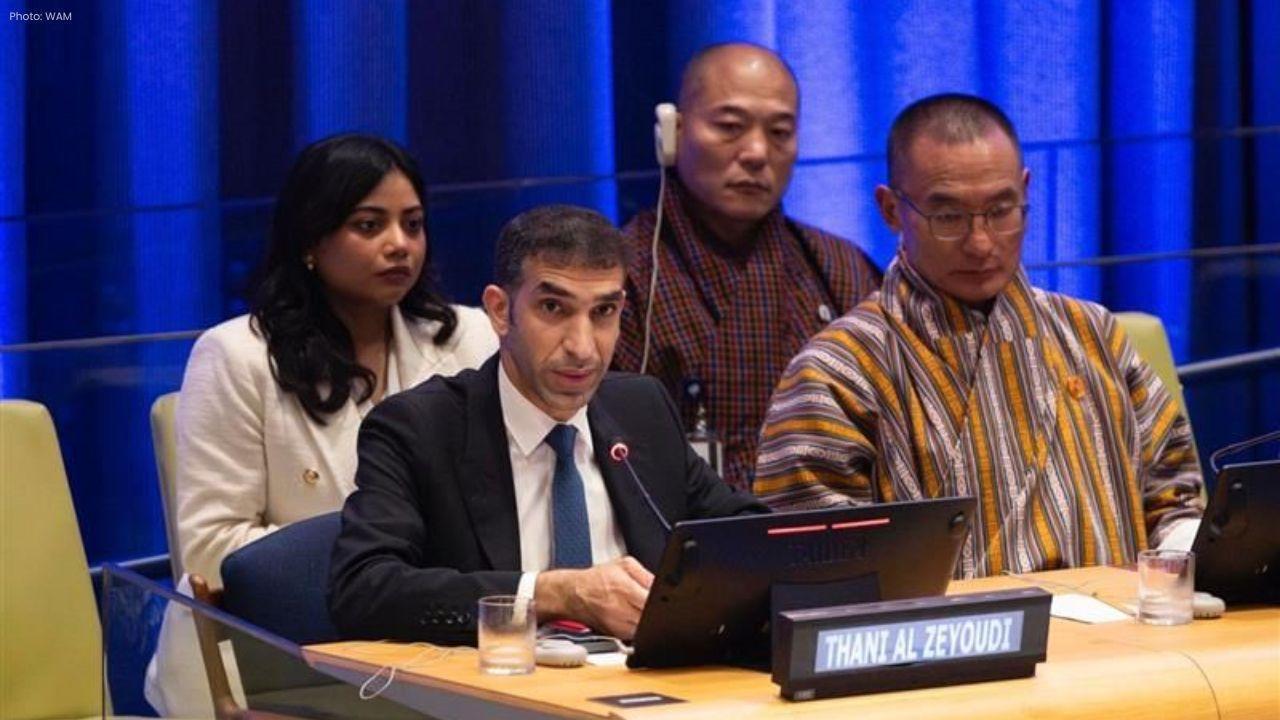
Post by : Naveen Mittal
Oil prices continued to rise as investors reacted to the latest wave of attacks on Russian energy infrastructure. The recent attacks on Russian energy facilities by Ukrainian drones have raised concerns about supply disruptions, which could impact global crude and fuel exports. While the world watches the unfolding geopolitical tensions, other factors like U.S. fuel demand and ongoing trade talks are also influencing the markets.
This article explains why oil prices are climbing, the significance of the attacks on Russian refineries and export terminals, and how other global economic issues are playing a role. The analysis aims to give readers a clear understanding of the market's behavior, while also explaining why these developments matter for consumers, investors, and governments.
Oil prices rose on Monday as investors reacted to attacks that targeted Russian refineries and export hubs. Brent crude, a global benchmark, increased by 47 cents, or 0.7%, reaching $67.46 a barrel. Similarly, U.S. West Texas Intermediate crude rose by 48 cents, or 0.8%, to $63.17 a barrel.
The price surge reflects growing concerns that continued attacks could disrupt Russian exports and affect supply chains around the world. Russia, one of the largest oil producers and exporters, plays a key role in the global energy market. Any sustained disruption to its production or transport facilities could have ripple effects across industries and economies.
Ukraine’s recent attacks have been more strategic, focusing on critical energy infrastructure such as:
Primorsk Terminal – Russia’s largest oil export hub located in western Russia, with a capacity of about 1 million barrels per day.
Kirishinefteorgsintez Refinery (Kirishi) – One of Russia’s largest refineries, processing approximately 355,000 barrels per day, equal to 6.4% of the country’s total crude production.
These attacks are seen as part of Ukraine’s evolving strategy to target energy assets that are vital to Russia’s economy and military efforts. Analysts believe that Ukraine’s willingness to disrupt oil and fuel supplies could lead to higher oil prices if infrastructure damage worsens or supply chains are interrupted for a longer period.
JPMorgan analysts, led by Natasha Kaneva, explained that this approach could create “upside pressure on oil prices.” The global energy market relies on consistent production and transport, and attacks on key nodes can quickly lead to supply fears, pushing prices upward.
Despite the attacks, some Russian regions, such as Bashkortostan, have announced that oil production will continue as usual. Regional leaders, like Radiy Khabirov, stressed that operations will be maintained to avoid disruptions.
However, pressure on Russia is growing. U.S. President Donald Trump has expressed readiness to impose sanctions if Europe does not act with similar severity. This could increase the isolation of Russia’s energy sector, further impacting exports and supply.
Another key factor contributing to oil price gains is the growing fuel demand in the United States. Despite concerns about rising inflation and slowing job creation, the U.S. economy remains one of the largest consumers of crude oil and fuel.
The Federal Reserve is expected to cut interest rates during its upcoming meeting, which could stimulate borrowing and fuel consumption. Investors are weighing whether increased fuel demand will offset concerns about a global slowdown.
Additionally, softer job data in the U.S. has not dampened consumer spending to the extent that it would affect energy demand. As the economy faces pressures, energy prices remain resilient, supported by both supply disruptions and steady consumption patterns.
Investors are also closely watching trade talks between the U.S. and China. The negotiations, taking place in Madrid, focus on tariffs and import policies, including concerns over China’s purchases of Russian oil.
The outcome of these discussions could influence future demand, as well as the geopolitical alignment of global energy markets. If tariffs are imposed or restrictions tightened, demand could fall, but supply disruptions might keep prices elevated.
The attacks on Russian energy facilities are happening against a backdrop of broader geopolitical tensions. Russia’s war against Ukraine has already reshaped energy markets, with sanctions, export restrictions, and rerouted supplies becoming common themes.
European countries, heavily dependent on Russian oil and gas, are scrambling to find alternatives. Meanwhile, countries like Qatar and Saudi Arabia are increasing production to fill supply gaps.
Oil’s role as a geopolitical tool is evident, with producers, exporters, and importing countries using energy as leverage to shape international relations.
While the short-term price increases grab headlines, the long-term implications of sustained energy disruptions could be even more significant:
Investment Shifts – Countries may increase investments in energy storage, alternative fuels, and renewable energy to avoid dependency on unstable regions.
Supply Chain Restructuring – Companies are likely to diversify their supply sources to mitigate future risks from geopolitical crises.
Energy Security Policies – Nations may revise their energy security strategies, focusing on resilience and sustainability over short-term profits.
Tony Sycamore, an analyst at IG Markets, pointed out that targeting export hubs indicates a potential strategic shift. He warned that forecasts might need to be updated if attacks continue.
Natasha Kaneva, from JPMorgan, emphasized the risk of price spikes if supply disruptions worsen. She noted that global markets might see increased volatility as a result.
The Organization of Petroleum Exporting Countries (OPEC+) is also closely monitoring the situation. Despite concerns about oversupply, the group is balancing the need to stabilize prices with political alliances and production targets.
A sudden surge in prices might pressure the cartel to either increase production or coordinate more closely with non-member countries. This uncertainty has added to investor anxiety.
The near future of oil markets depends on how these factors play out. If attacks on Russian energy infrastructure continue, supply fears could push prices even higher.
On the other hand, if Russia manages to maintain output and alternative sources fill the gap, prices might stabilize in the medium term.
The outcome of U.S.-China trade talks and the Federal Reserve’s policy decisions will also shape demand forecasts and market sentiment.
The recent attacks on Russian energy facilities are a stark reminder of how fragile global energy markets can be. While supply disruptions have sent oil prices higher, the broader context of geopolitics, economic uncertainty, and trade relations plays a crucial role.
For investors, policymakers, and everyday consumers, understanding the complex interplay of these factors is essential to making informed decisions. The energy crisis is no longer about production alone—it’s about security, diplomacy, and resilience.
As the world watches developments unfold, one thing is clear: oil markets will remain sensitive to geopolitical shocks, and strategies to navigate these risks will become increasingly important.
#OilPrices #EnergyCrisis #RussianOil #UkraineConflict #GlobalMarkets #CrudeOil #FuelDemand #OPEC #TradeTalks #EnergySecurity










OpenAI's Revenue Soars to $4.3 Billion in First Half of 2025
OpenAI's revenue reaches $4.3 billion in the first half of 2025, marking a 16% increase from the pre

UAE Leaders Send Condolences to Saudi King Over Princess Abta's Death
UAE rulers and crown princes sent heartfelt messages to King Salman, mourning the passing of Princes

Brazil's Surplus Clean Energy Attracts Crypto Miners
Brazil's excess renewable energy is luring cryptocurrency miners. Companies like Tether and Renova E

Visa Tests Stablecoins to Make Global Payments Faster
Visa is testing stablecoins for international payments, aiming to speed up transactions and reduce t

Opera Unveils Neon AI Browser for Smarter Web Browsing
Opera introduces Neon, an AI-powered browser that automates tasks and enhances privacy, aiming to re

Albanese Visits Sheikh Zayed Grand Mosque in Abu Dhabi
Australian PM Albanese tours Sheikh Zayed Grand Mosque, highlighting peace, tolerance, and cultural